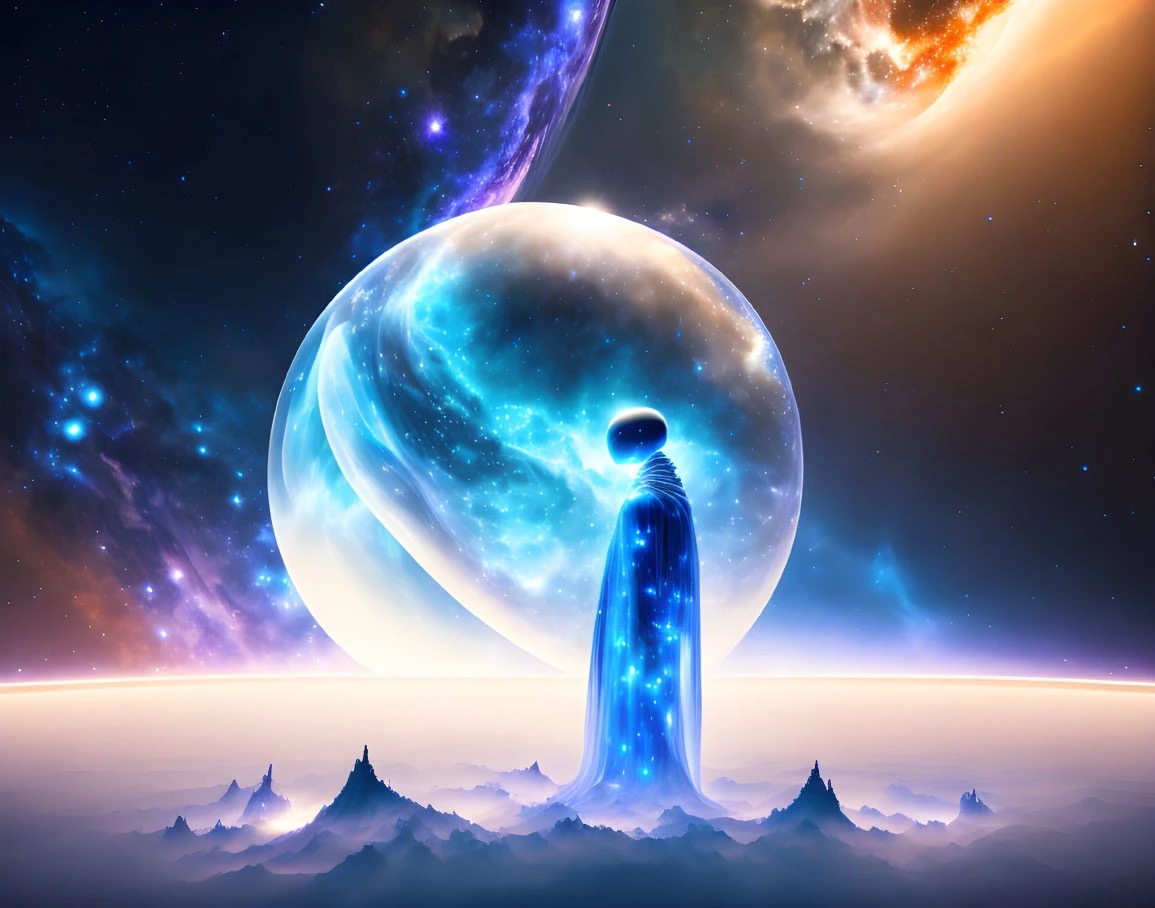By understanding the mysteries of the human psyche, we may understand the nature of the universe
by Rostislav Szeruda
The word ψυχη (psyche) originates from Greek and corresponds to the word soul. In Greek mythology, Psyche is often portrayed as a beautiful girl with butterfly wings. The Greek word ψύχω (psycho) means to bathe, to breathe. Psyche thus mythologically refers to the breath that leaves the human body at the moment of death. This breath accompanies the individual throughout life, giving him life, mind and consciousness. According to Homer, when psyche, like a butterfly, leaves the body with the last breath of the dying person, it acquires an independent existence.
Mind and consciousness are often seen as topics not suitable for science. Why? Because they are said to be impossible to study objectively. In their work, physicists investigate the mysteries of the material world, but prefer to remove the phenomena of mind and consciousness from it. The material world can be studied. Material things can be measured, weighed, observed. But the existence of the spiritual world can only be believed or disbelieved.
Although science today has sophisticated methods for investigating the function of our brains, it has not yet succeeded in the least in explaining the nature of thought and consciousness. It does not even seem to come close to such an explanation. Artificial intelligence research may lead to the creation of perfect control systems and robots for very complex activities and operations, but it does not come anywhere near to creating an artificial conscious organism.
There are indications that the human soul – the psyche – may not be a mere fantasy or a concept used to describe our mental abilities, but something that actually exists. If there is a grain of truth to them, it can radically change our view of the world and its meaning.
Our minds exist in a world composed entirely of physical particles without mind or meaning, as science says. It is therefore a question of where the emergence of the new quality, which our mind and consciousness undoubtedly is, occurs. Where did what we call psyche come from? Is it the product of some electrochemical reaction? Can it be simulated by computation? Or is it rather a property that must be somehow bound up in its latent form with the physical essence of the world?
If there is a human soul, there is a way to describe it, and not only in religious or psychological terms. It need not be something immaterial, abstract, and existing outside the laws of nature, but it may be something that reflects physical reality as we do not yet know it. By exploring the mysteries of the human psyche, we may understand the nature of the universe that has eluded us until now. An essence that gives the universe and our existence a deeper meaning and integrates them together.
The only way it might escape detection is if it weighs so small that locating it in a particular place is not possible. Its mass must be so small that it behaves like a quantum microworld object. Does this mean, then, that the soul is composed of some mysterious particles hitherto unknown to physicists – mentions or psychons? If they interacted with ordinary matter, they would have been discovered already. If they don’t interact with it, they can hardly influence the activity of our brains.
We can imagine the human mind as a quantum computer. Theoretically, it could simulate the fuzzy processes that take place within it. But imagining the brain as a quantum computer says nothing about the possibility of a human soul in the sense imagined by the world’s religions. That is, a soul capable of a separate existence independent of the brain.
Our psyche may not be the product of a quantum supercomputer called the brain but may itself be a quantum structure that is bound to our brain during our lifetime but is capable of existing in some form of existence after death. It is probably not a cluster of some mysterious particles, but rather a shape in a quantum field.
Is there any indication or evidence that this is the case? If our soul is a quantum structure, we can probably visit or experience this world as a kind of psychonaut. Our conscious mind moves in the realm of what we can realistically observe – what we call reality. Our subconscious and unconscious mind, however, is closer to quantum reality. This is evidenced, for example, by our dreams. They are vague, fuzzy, changeable, and the temporal sequence means nothing for them.
Based on the book Rostislav Szeruda, A New Look at the Human Soul and Consciousness (2016)

Napsat komentář